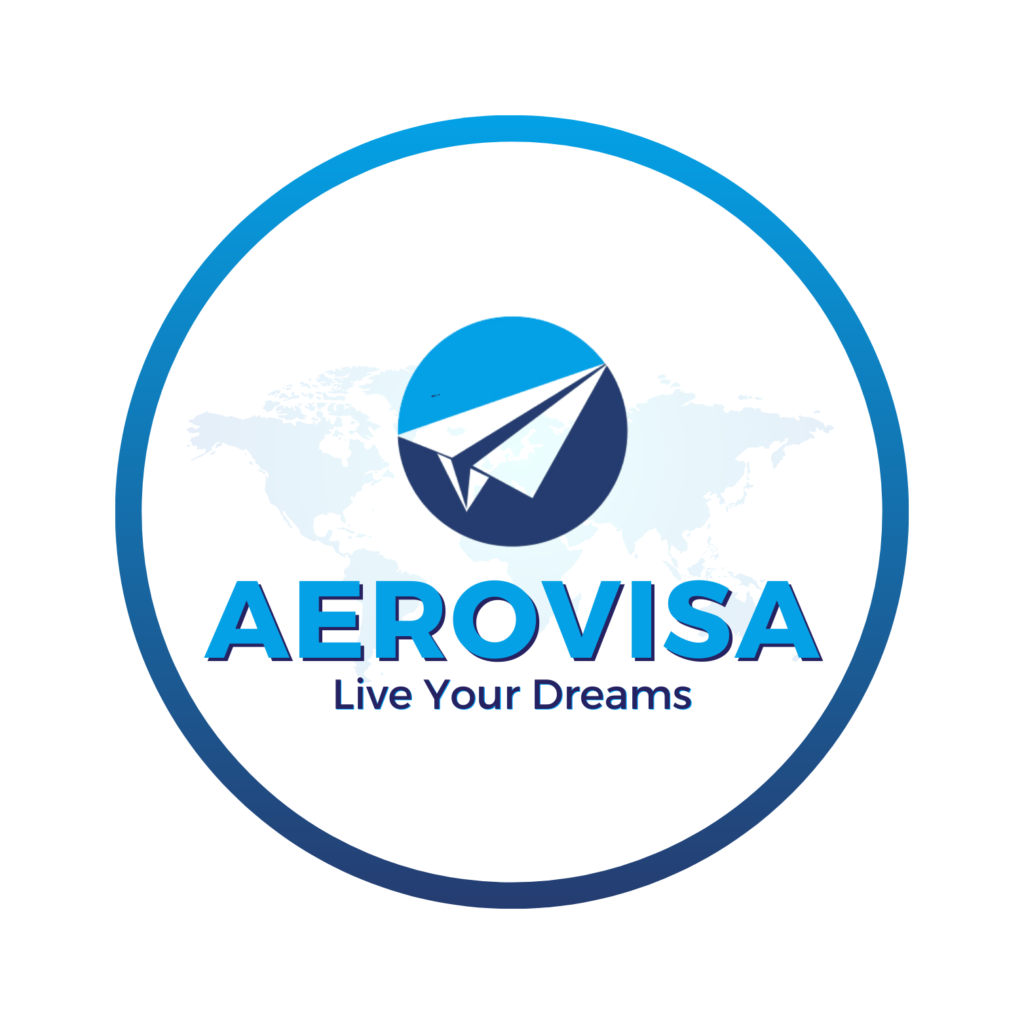Schengen visas
Need more information's?

Why Choose Schengen ? : Our Guide to Applying for an Schengen Visa with AeroVisa Services
The Schengen Area is a region of 29 European countries that have abolished their internal borders to allow the free and unrestricted movement of people. It covers a vast area of 4,718,084 km2 and is home to over 448 million citizens.
Most EU countries are within the Schengen Area except Ireland and Cyprus which will soon be part of it. Additionally, several non-EU countries like Norway, Iceland, Switzerland, and Lichtenstein are integral members despite their non-EU status
Nationals of non-European countries can travel to Schengen countries in Europe for up to 90 days within a six-month period with a Schengen visa. Whether you’re traveling for leisure, visiting friends and relatives, or exploring business opportunities, the Schengen tourist visa is your entry point into Europe. With our specialized visa services, Aerovisa Services, your trusted immigration consultants, can assist you in understanding your options and guiding you through the Schengen visa process.
Schengen Countries Special Considerations
The following countries are special cases within the Schengen Agreement:
- Iceland, Norway, Switzerland, and Lichtenstein are associate members of the Schengen Area but are not members of the EU. They are part of the EFTA and implement the Schengen acquis through specific agreements related to the Schengen agreement.
- Andorra, Monaco, San Marino, and Vatican City have opened their borders but are not members of the visa-free zone.
- The Azores, Madeira, and the Canary Islands are special members of the EU and part of the Schengen Zone, even though they are located outside the European continent.
European Countries That Are Not Part of the Schengen Area or the European Union
Here is a list of European countries that are neither members of the European Union nor participants in the Schengen Zone:
- Albania
- Azerbaijan
- Belarus
- Bosnia and Herzegovina
- Kosovo
- Moldova
- Montenegro
- North Macedonia
- Russia
- Serbia
- Türkiye
- Ukraine
- United Kingdom
Why Immigrate to Schengen Countries?
There are several benefits to relocating to Europe, including:
- The ability to visit other European nations without a visa.
- Affordable access to federal healthcare programs.
- Opportunities for high salaries.
- The chance to reside in one of the world’s most developed and secure nations.
- Improved work-life balance.
- Access to renowned historical sites and parks.
Still feeling confused about immigrating to Europe? Let Aerovisa Services, your trusted immigration consultants, help you out.
How Do I Immigrate?
If you’re considering moving to Europe from India, here are the necessary documents you should prepare:
- Language Proficiency with Documentation: You must be fluent in the language of the nation from which you are applying for immigration. English is a required language as it is widely used globally. Demonstrate your language ability in English or any other language by taking a variety of tests.
- Valid Passport: Your passport must be up to ten years old and have at least four additional months of validity.
- Evidence of Lodging: If you intend to visit Europe briefly, you must provide evidence of your lodging. Having a sponsor can simplify your application process.
- Employment Contract: If relocating for a job, you must have a year’s worth of work experience and official employment documentation from the company that hired you.
Types of Visas
Skilled Worker Visa
The Highly Skilled Migrant permit requires a three-month contract, unlike the EU Blue Card’s one-year employment contract requirement. By 2022, highly skilled immigrants must meet the following pay requirements: €4,840 monthly gross.
Business Visa
Nationals of countries with mandatory visa requirements from the Schengen Area are granted business visas to conduct business in the EU. This visa allows you to pursue business goals without the need for citizenship in the destination country.
Citizenship Visa
Programs for obtaining European citizenship through investing allow investors to do so in a few months. This often involves a donation or investment, enabling you to gain citizenship quickly compared to other methods.
Student/Study Visa
International students wishing to further their studies in a Schengen nation can apply for a three-month temporary student visa, renewable upon expiry. Admission to a program may lead to a resident permit. Some Schengen study visas do not require IELTS or other language tests.
Family Visa
Citizens of third countries wanting to visit family or friends in the Schengen Zone can apply for a Schengen Visitor Visa. This is required if your country of citizenship mandates a Schengen short-stay visa.
Visitor/Tourist Visa
The paperwork for a Schengen tourist visa varies by destination. The consulate may request additional documents or a second interview. Ensure you submit all required documents to improve your chances of obtaining the visa.
Work Permit Visa
Each Schengen member state has unique visa regulations based on their labor needs. The employment visa programs aim to meet these demands and address job shortages.
Documents Required:
- Visa Application Form: Completed and signed visa application form, available from the Perticular embassy website.
- Passport: Valid passport with at least two blank pages and valid for at least three months beyond the intended duration of stay in Schengen Countries.
- Passport-Sized Photos: Recent passport-sized photos meeting specific requirements (size, background color, etc.).
- Letter of Acceptance: Official letter of acceptance or enrolment from a recognized educational institution confirming admission to a program of study.
- Proof of Accommodation: Evidence of accommodation arrangements in country, such as a rental agreement, dormitory reservation, or letter of accommodation from the educational institution.
- Financial Means: Proof of sufficient financial means to cover living expenses, tuition fees, and other related costs during the stay in France. This can include bank statements, scholarship letters, or financial guarantee letters.
- Travel Itinerary: Proof of round-trip travel arrangements or a booked flight reservation.
- Health Insurance: Proof of health insurance coverage valid for the duration of the stay in country, including medical expenses and repatriation.
- Academic Transcripts: Academic transcripts or diplomas from previous studies, particularly for graduate-level programs.
- Language Proficiency: required for some countries
- Cover Letter: A cover letter explaining the purpose of the visit, the intended course of study, and plans while in schengen countries.
Key Points For Why Schengen Visa
- More Government Universities.
- Easyly Get Schengen VISA.
- No IELTS Required.
- No Entrance Test.
- Easy Visa Process.
- No Language Problem.
- Erasmus-Student Exchange Program.
- Fast Processing Time.
- 20 Hrs/Week Part Time Work.
- Low Cost Living.
- Low Profile Accepted.
- Program Taught in English.
- Stay Back for 6 to 12 Months.
- 3 Years Bachelors Courses.
- Min. Percentage Required 60%.
- Min. Qualification 12th Pass.
- Engineering/Management/Medical.
A single-entry visa restricts the number of entries into the Schengen Area. The visa expires once you leave, regardless of the remaining validity period. A multiple-entry visa allows multiple entries and exits within the visa's validity period.
Ready to explore Europe? Contact Aerovisa Services today to learn more about how we can assist you in obtaining your Schengen visa and embark on an exciting adventure across Europe.
The processing time for a Schengen visa typically ranges from 15 to 30 days from the date of your application submission. However, it can vary depending on the country you are applying to, the time of year, and individual circumstances. It is advisable to apply at least three months before your planned travel date to ensure sufficient processing time.
Generally, Schengen visas cannot be extended. However, under exceptional circumstances such as humanitarian reasons, force majeure, or serious personal reasons, an extension might be granted. It is important to apply for an extension before your current visa expires at the local immigration office of the Schengen country you are staying in.
Yes, a Schengen visa allows you to travel to any of the 26 Schengen countries for the duration of your visa's validity. This means you can enter one Schengen country and move freely within the Schengen Zone without additional visa requirements.
If your Schengen visa application is denied, you will receive a letter explaining the reasons for the denial. You have the right to appeal the decision. The appeal process and deadlines vary by country, so it is important to follow the instructions provided in the denial letter. Additionally, reviewing the reasons for denial and addressing any issues can improve your chances if you choose to reapply.
REACH OUT AND CONNECT
How Can We Help You?
Share your details with us and our team will contact you for assessment shortly.

